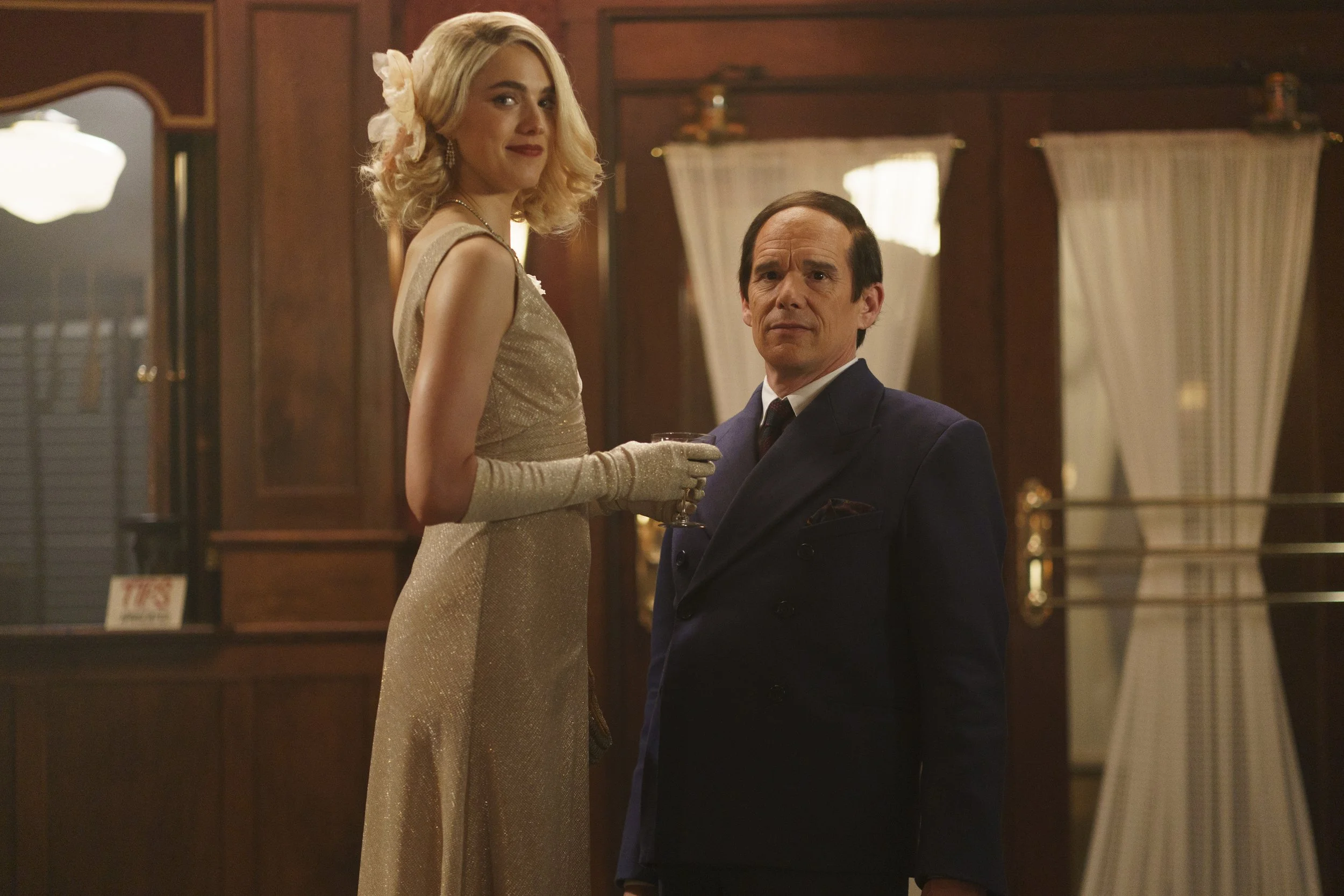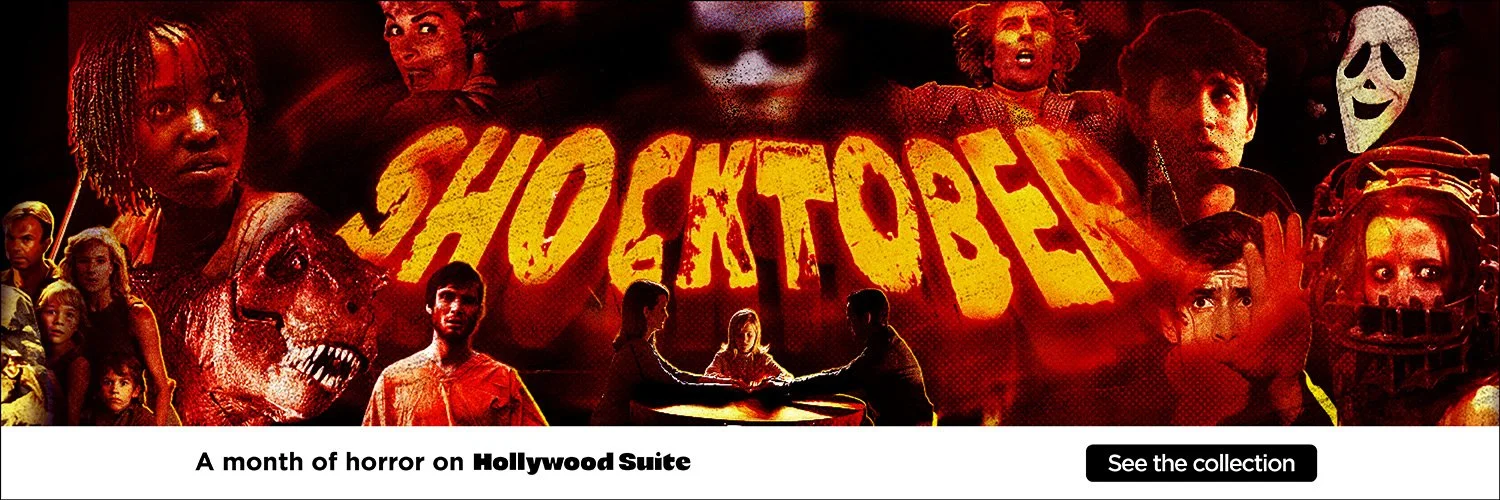Blue Moon: More Bothered Than Bewitched
By Liam Lacey
Rating: B
Judging by the film festival buzz about Richard Linklater’s Blue Moon, I suspect I’m supposed to like the film more than I do.
It has undeniable strengths, including an all-in performance by Ethan Hawke as the film’s protagonist — shrunk down a full foot in height with a see-through comb-over — to play the diminutive, gay, alcoholic lyricist Lorenz Hart. Hart was the poet who wrote the words to such gems as “My Funny Valentine,” “Manhattan,” “Bewitched, Bothered and Bewildered,” “The Lady is a Tramp” and the movie’s title song, “Blue Moon.”
Over his two dozen feature films over four decades, Linklater has put his digressive, talky, signature style on wildly varied films (Slacker, the Before trilogy, Boyhood, Waking Life, School of Rock, Hit Man). In its way, Blue Moon is also innovative, in the sense that it is unconventionally old-fashioned.
The script by Richard Kaplow, who wrote Linklater’s 2008 film Me and Orson Welles, feels as though it were adapted from an off-Broadway play, with the action mostly in one location over the course of one night, March 31, 1943, the opening night of the Rodgers and Hammerstein musical, Oklahoma!
After a prologue foretelling Hart’s death at 48 following a bender eight months later, we have a brief scene of Hart and his mother, with whom he lived, in the balcony of the St. James Theatre at the end of Oklahoma! After expressing his exasperation with the big cornpone musical, Hart leaves during the show’s ovations to hit the bar early.
Blue Moon in the words of Linklater, Hawke, Cannavale and Scott
The rest of the film’s action takes place in the bar at Sardi’s restaurant, the place where, traditionally, Broadway casts went for an after-party and to read the early reviews. Over the course of that evening, as Hart wrestles with the temptation to get drunk and contends with the end of his more than 20-year relationship with Richard Rodgers because of his erratic behaviour and drinking, he encounters a handful of characters he can talk with, or more accurately, at.
These include sympathetic bartender Eddie (Bobby Cannavale), and a kid at the piano (Jonah Lees), a young solider on leave. While waiting for the Oklahoma! after-party to arrive, Hart asserts the real goal of the evening: re-connecting with a smart, beautiful 20-year-old undergraduate Elizabeth (Margaret Qualley), a protégé, a possible muse, someone who he vainly hopes might love and redeem him.
Though Hart talks almost constantly, to my ear, the expected linguistic fizz just isn’t there, not in Hart’s dick jokes or his easy puns (“I’m not guilty the Mann act, or even the middle-aged man act”). The clunkiest part of the film consist of a series of imagined encounters between Hart and various famous and yet-to-be famous personalities.
These include the author E.B. White (Patrick Kennedy), not in real life known as a drunk but, for the purposes of the film, met out bar-crawling in the theatre district on a Tuesday night. In the film, Hart gives him the idea for the children’s story Stuart Little. In reality, the inspiration for the story came to White during a dream while riding on a train in 1926.
Who should show up but 12-year-old Stevie Sondheim (Cillian Sullivan), accompanied by his mentor, Oscar Hammerstein II (Simon Delaney), who has replaced Hart as Rodgers’ favoured lyricist. The impudent prodigy rubs salt in the fresh wound with a dismissive critique about Hart’s technique, opinions that Sondheim expressed many decades later.
The most pointless of these encounters sees Hart introduced to a Yale senior named George Hill, who wants to be a director. “Be careful of love stories” says Hart, apropos of nothing. “Think about friendship stories. That’s where the enduring stuff lives.” “Thank you. I’ll remember that,” says the future director of Butch Cassidy and The Sundance Kid.
The encounter with the golden girl Elizabeth takes the film in deeper, more complicated emotional territory. The daughter of the member of the influential Theatre Guild, she’s a preppie looking for a career in stage and costume design. She is at the party not just to see her besotted mentor, but to hobnob with future potential employers.
She and Hart end up in the cloakroom together (you might also call it a closet) where he eagerly encourages her to give him the hot details of a sexual encounter with a college hunk. Her story goes on, and on, culminating in her confession of her own repeated disappointments in love (I half-expected the piano player would begin “That’s Why the Lady Is a Tramp”). At the end, Elizabeth explains that she loves Larry but “just not in that way” confirming his sense of his unloveableness.
Interestingly, the sanitized 1948 biographical film about Rodgers and Hart, Words and Music, placed the source of his depression on the unrequited love of a woman. But Hart, who calls himself “omnisexual” as a writer or “ambisexual” (because he masturbates with both hands) wants whatever love he can find.
The ambiguity is interesting, kind of... When did we last have a movie courageous enough to star an established romantic lead actor using prosthetic assistance to play a gay Broadway genius who longed for the love of a woman but preferred sleeping with men? That would be Bradley Cooper in Maestro, 2023.
Another movie Blue Moon also brings to mind is John Huston’s 1952 film Moulin Rouge, which starred José Ferrer, walking on kneepads, as the short alcoholic artist Henri de Toulouse-Lautrec, in love with an unobtainable taller woman. Height, as much as sexual orientation and alcoholism, seems to be big barrier here. In real life, Margaret Qualley is about 5’8” but in scenes with the diminished Hawke, she towers over him like an NBA power forward looming over a schoolboy.
The best scene in Blue Moon comes late in the film, when now inebriated Hart buttonholes the sympathetic but reserved Rodgers (Andrew Scott) on the staircase (one is going up, the other down). Proud to the last, Hart takes digs at the sentimentality of Oklahoma!, which has already been crowned a triumph by the early reviews.
He slushily reminisces about his first meeting with Rodgers (“You standing there in your carpet slippers and bathrobe…”) Like a spurned lover begging for a second chance, he urges his old friend to work with him again.
Scott, an actor who doesn’t seem to know how to do false notes, won a Silver Bear for Best Supporting Actor at the Berlin International Film Festival earlier this year for his brief turn here. That seems fair: He salvages the film.
As Rodgers listens to Hart’s rush of speech, he responds with his gaze, in subtle shifts of resolve, discomfort, and sympathy for his friend’s humiliation. He has a faraway look of someone who can see the future, not just of the American musical, but his old friend’s setting sun.
Blue Moon. Directed by Richard Linklater. Written by Robert Kaplow. Starring Ethan Hawke, Margaret Qualley, Bobby Cannavale, Andrew Scott, Jonah Lees, Simon Delaney and Cillian Sullivan. In theatres October 24.


